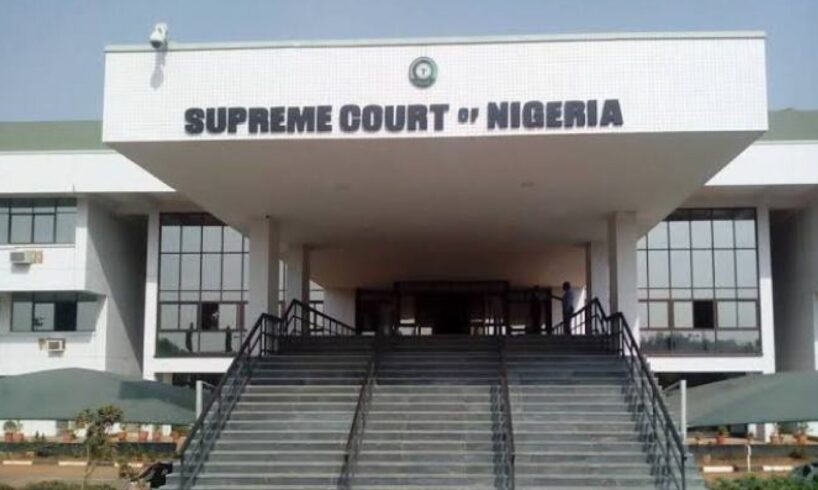
The Chief Justice of Nigeria (CJN), Justice Kudirat Kekere-Ekun, has disclosed that the apex court delivered 369 judgments out of 2,280 matters it considered during the 2024/2025 Legal Year, which ended on Friday, 18th July 2025.
Kekere-Ekun made this known at the Special Session of the Supreme Court of Nigeria marking the commencement of the 2025/2026 Legal Year.
The ceremony also featured the conferment of the Senior Advocate of Nigeria ranks to 57 lawyers.
She stated that this development implies the Supreme Court is continuing to work towards addressing the backlog of cases.
Breakdown of Cases
According to the CJN, “In the 2024/2025 Legal Year, which ended on Friday, 18th July 2025, the Court considered a total of 2,280 matters, comprising both motions and appeals.”
Of these matters, 1,720 were motions, broken down into 1,025 civil, 488 criminal, and 27 Sharia-related matters.
“The Court also entertained 560 appeals, broken down into 352 civil, 180 criminal, 6 political, 15 Sharia, and 7 originating summons.”
“From these matters, a total of 369 judgments were delivered,” the CJN added.
She stressed that the number of appeals disposed of reflects significant progress compared to the preceding 2023/2024 Legal Year, during which the Court handled 1,124 cases: 435 civil appeals (including 89 political appeals), 269 civil motions, 219 criminal appeals, 102 criminal motions, and 10 originating summons, which culminated in 247 judgments and rulings.She highlighted that this positive improvement resulted from deliberate measures, including the adoption of innovative case management strategies and a strategic enhancement of judicial capacity.
Furthermore, the CJN disclosed that the apex court’s Corruption and Financial Crime Cases Trial Monitoring Committee (COTRIMCO), under the leadership of Justice Suleiman Galadima, CFR, JSC (Rtd), has been instrumental in accelerating the judicial process for all cases related to corruption.
She added that the first and second quarters of 2025 revealed remarkable progress, resulting in the Economic and Financial Crimes Commission (EFCC) securing an impressive 1,417 convictions, while the Independent Corrupt Practices and Other Related Offences Commission (ICPC) initiated 43 new cases and achieved nine convictions.The CJN noted that the ICPC has experienced a substantial decline in the volume of corruption and financial crime cases being prosecuted, a trend which, according to her, has consequently led to fewer returns on cases.
“This positive development is primarily attributed to the proactive and preventive measures recently implemented by the Commission, signalling a strategic shift towards deterring such crimes before they escalate,” she added.
Turning to the 57 legal practitioners who have earned the esteemed rank of Senior Advocate of Nigeria, Kekere-Ekun stated that the rank signifies not only professional excellence but also a commitment to ethical conduct and upholding the integrity of the legal profession.
She reiterated that the rank will be withdrawn in appropriate circumstances where it is abused.
Backstory
At the third Annual National Conference on Judges’ Performance Evaluation in Abuja in October 2024, the CJN advised judges to take charge of their courtrooms, maximize the use of the Case Management System, and foster an environment where constructive feedback is valued and acted upon.
“We must be deeply concerned by the increase in the number of pending cases and low disposition rates. As of the first quarter of 2024, we had a total of 243,253 cases pending in our Superior Courts of Record, excluding the Supreme Court. This total comprises 199,747 civil cases and 43,506 criminal cases,” she disclosed.
She also encouraged judges to explore information technology options.
“The introduction of digital case management systems, the Judicial Performance Evaluation Software (JPES), virtual courtrooms, e-filing systems, digital databases, web seminars, online meetings, and advanced research engines provides a myriad of tools for efficiency in case disposition,” she said.
In addition, she noted that alternative dispute resolution mechanisms, such as mediation and arbitration, should be explored as they support quicker resolutions and reduce the burden on judges.Follow us for Breaking News and Market Intelligence.
Source




